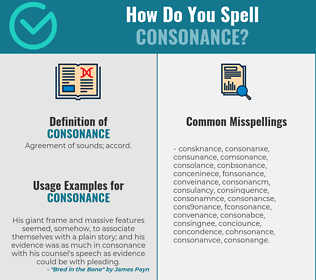Consonance is a literary and musical device that refers to the repetition of consonant sounds beyond the beginning of words in a group of words or lines of poetry or prose. It is a technique used to create harmony, rhythm, and musicality in language.
In literature, consonance often occurs when consonant sounds are repeated either at the beginning, middle, or end of words in close proximity. It differs from alliteration, which only focuses on the repetition of consonant sounds at the beginning of words. Consonance adds a melodic quality to the text, enhancing its emotional impact and helping to convey meaning effectively.
In poetry, consonance contributes to the overall rhythm and musicality of the verse, enhancing its lyrical quality. It can also create an internal rhyme or a unifying effect within a stanza or poem. By employing consonance, poets can evoke specific moods, create vivid imagery, emphasize important ideas, or establish a particular tone.
Musically, consonance occurs when two or more sounds or pitches played simultaneously sound pleasing and harmonious. In contrast, dissonance refers to sounds or pitches that clash or create tension. Consonance is a fundamental concept in music theory and forms the basis of harmony and chord progressions.
Overall, consonance is a versatile rhetorical and musical device that enriches language and sound by repeating consonant sounds within words or lines, whether in literature or music, to create harmony, rhythm, and melodic appeal.





